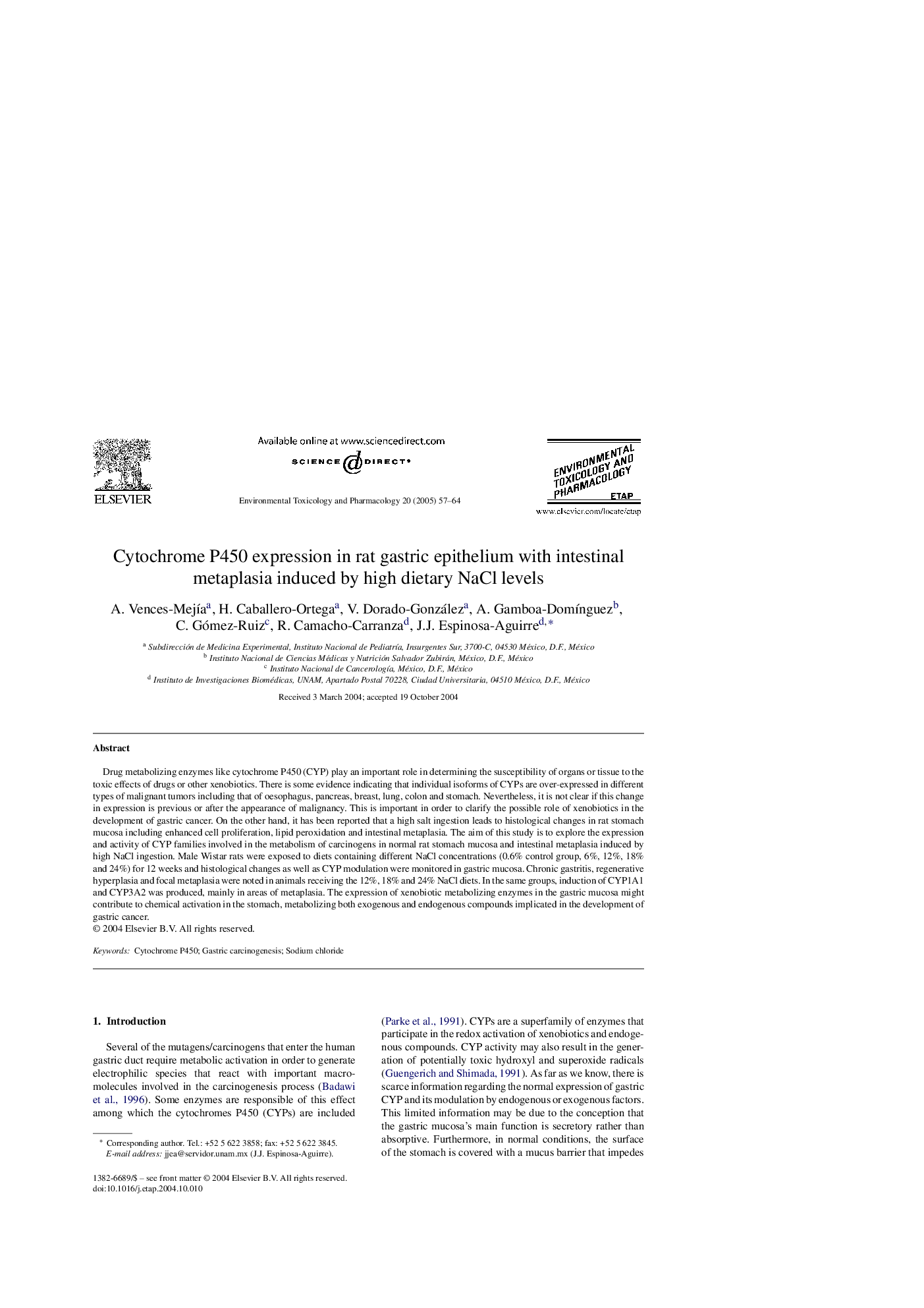| Article ID | Journal | Published Year | Pages | File Type |
|---|---|---|---|---|
| 9030200 | Environmental Toxicology and Pharmacology | 2005 | 8 Pages |
Abstract
Drug metabolizing enzymes like cytochrome P450 (CYP) play an important role in determining the susceptibility of organs or tissue to the toxic effects of drugs or other xenobiotics. There is some evidence indicating that individual isoforms of CYPs are over-expressed in different types of malignant tumors including that of oesophagus, pancreas, breast, lung, colon and stomach. Nevertheless, it is not clear if this change in expression is previous or after the appearance of malignancy. This is important in order to clarify the possible role of xenobiotics in the development of gastric cancer. On the other hand, it has been reported that a high salt ingestion leads to histological changes in rat stomach mucosa including enhanced cell proliferation, lipid peroxidation and intestinal metaplasia. The aim of this study is to explore the expression and activity of CYP families involved in the metabolism of carcinogens in normal rat stomach mucosa and intestinal metaplasia induced by high NaCl ingestion. Male Wistar rats were exposed to diets containing different NaCl concentrations (0.6% control group, 6%, 12%, 18% and 24%) for 12 weeks and histological changes as well as CYP modulation were monitored in gastric mucosa. Chronic gastritis, regenerative hyperplasia and focal metaplasia were noted in animals receiving the 12%, 18% and 24% NaCl diets. In the same groups, induction of CYP1A1 and CYP3A2 was produced, mainly in areas of metaplasia. The expression of xenobiotic metabolizing enzymes in the gastric mucosa might contribute to chemical activation in the stomach, metabolizing both exogenous and endogenous compounds implicated in the development of gastric cancer.
Related Topics
Life Sciences
Environmental Science
Health, Toxicology and Mutagenesis
Authors
A. Vences-MejÃa, H. Caballero-Ortega, V. Dorado-González, A. Gamboa-DomÃnguez, C. Gómez-Ruiz, R. Camacho-Carranza, J.J. Espinosa-Aguirre,
